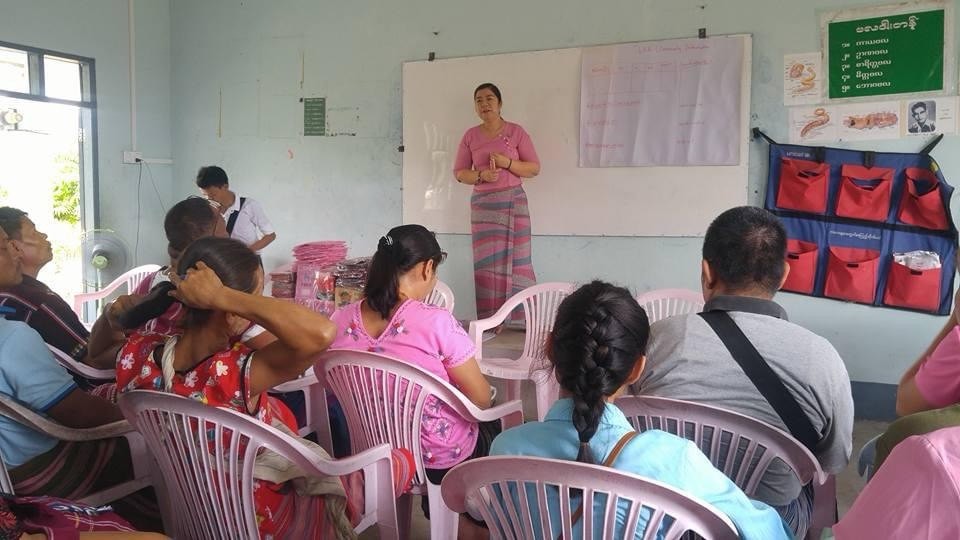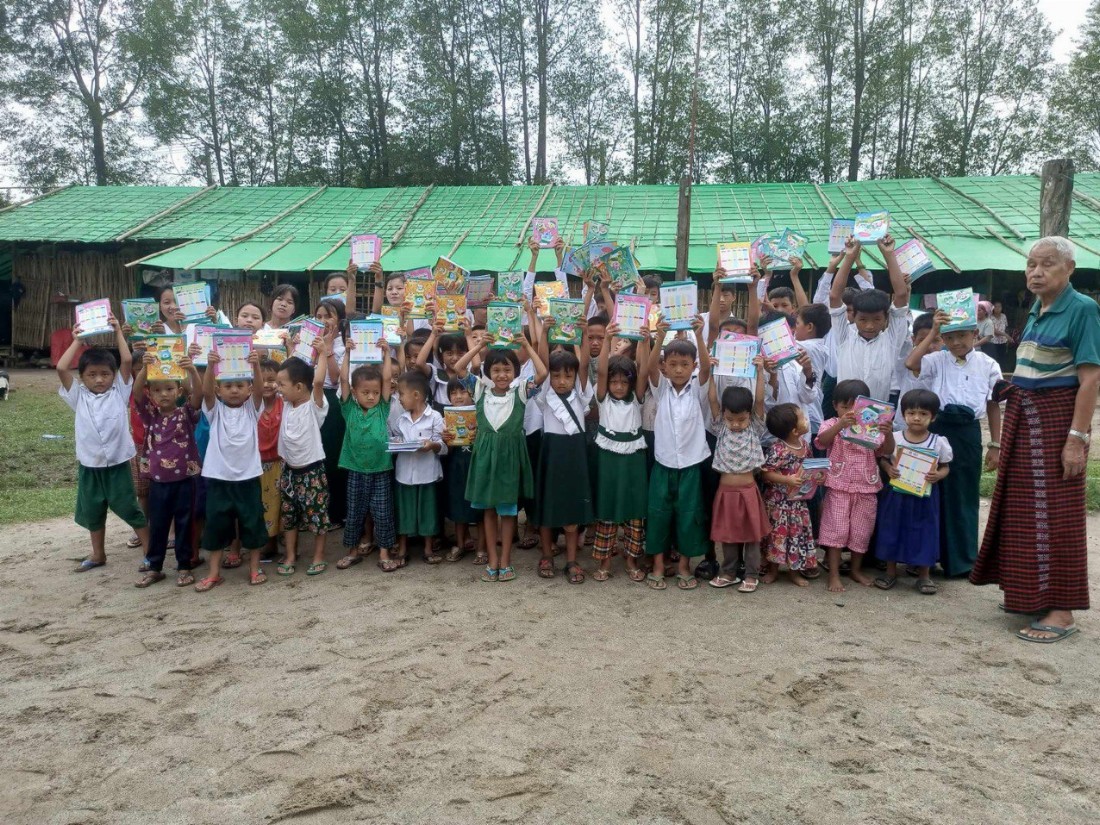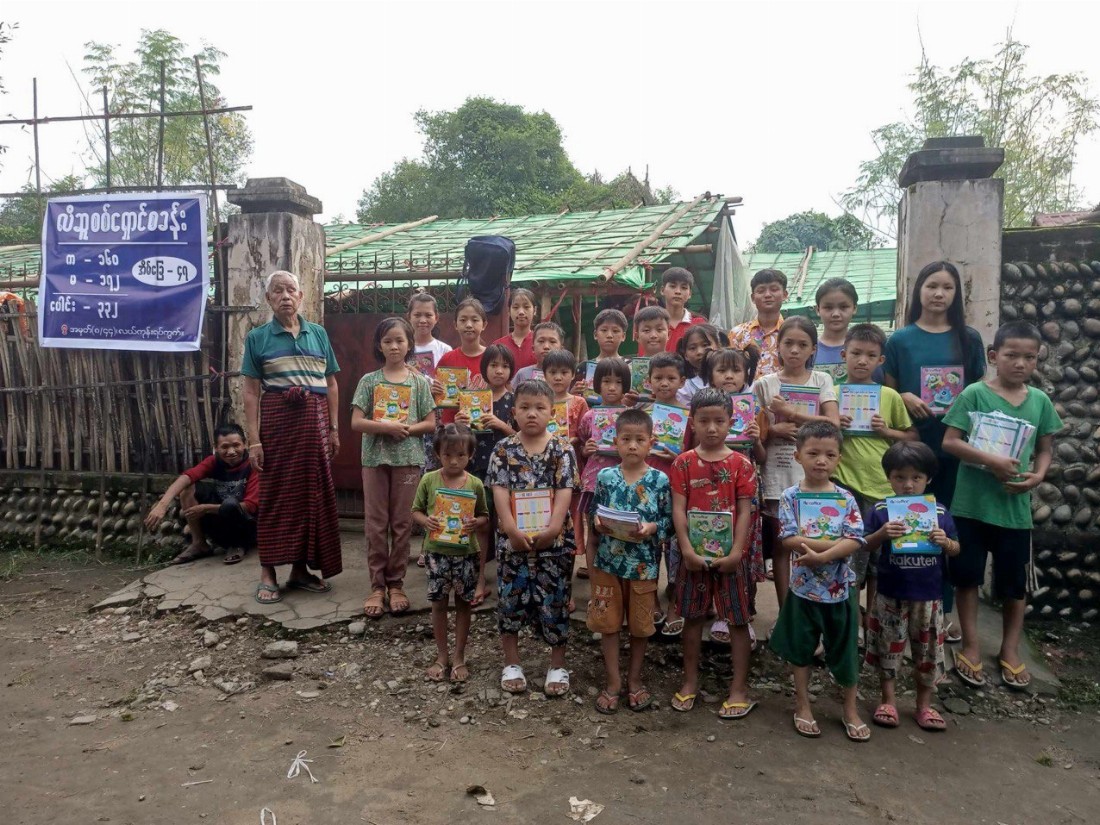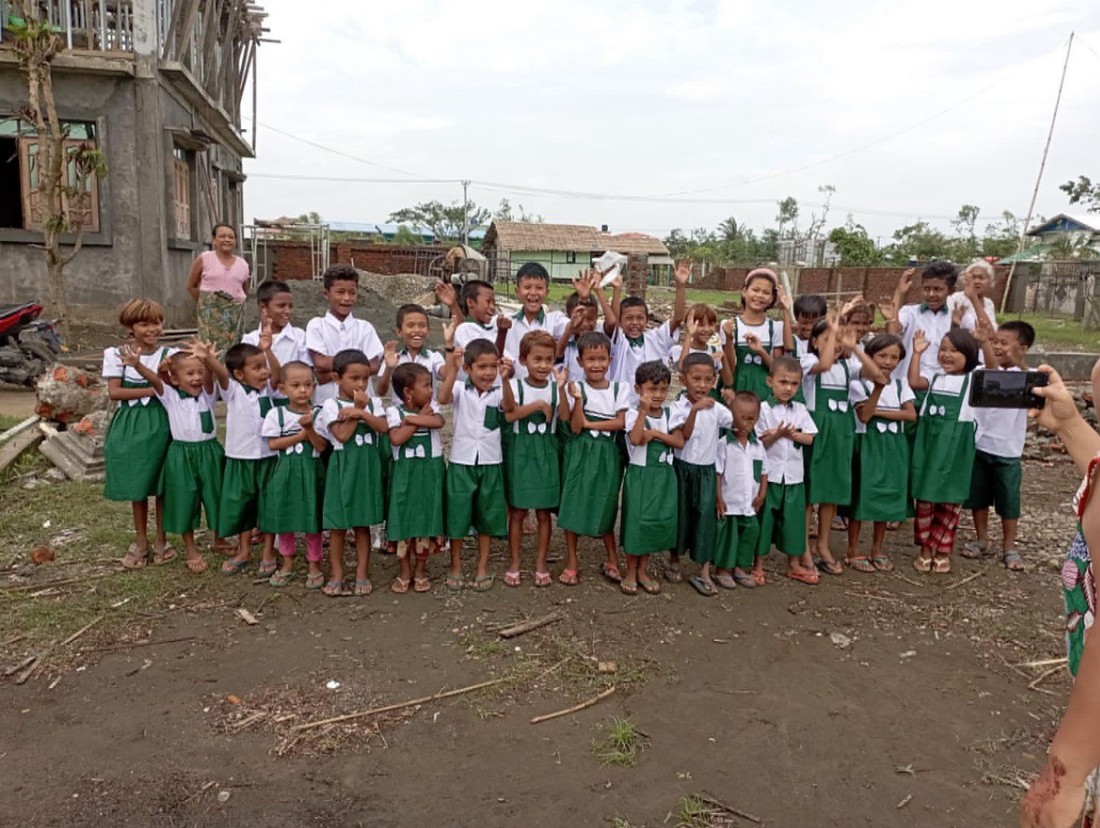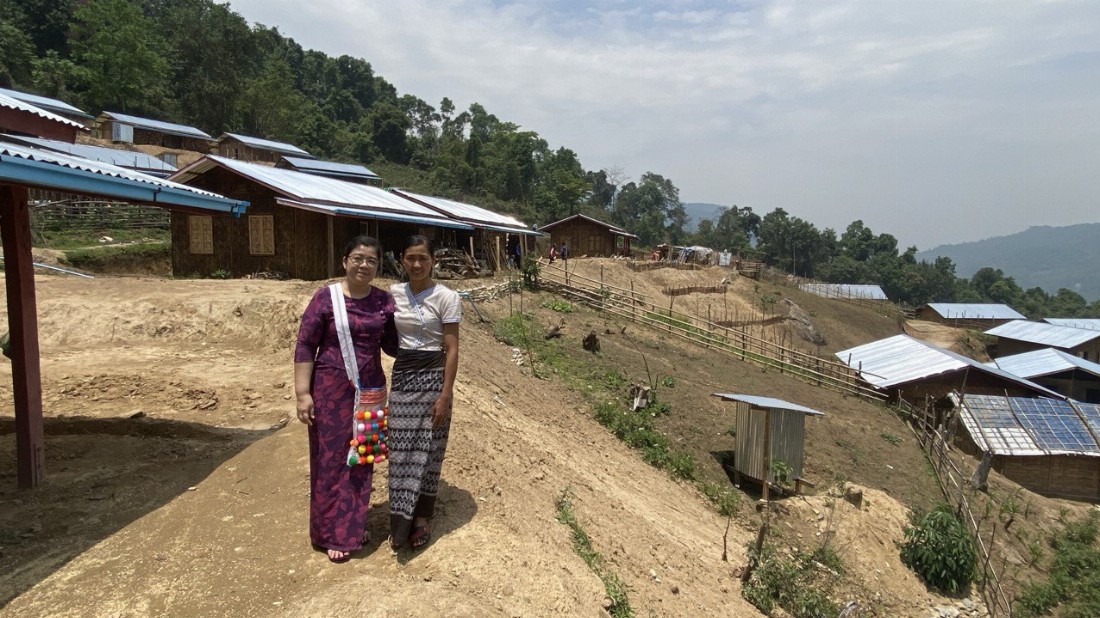myanmar - prevention, mitigation
Naw Ni Sat Tin Htoo

- Actor/Organisation
- Naw Ni Sat Tin Htoo / Myanmar Women and Children Development Foundation (MWCDF)
- Current Title/Designation
- Joint Secretary (2), Myanmar Women and Children Development Foundation (MWCDF)
- Expertise/Focus Area
- Prevention, Mitigation
- Date of Interview/Research
- 06 November 2024
- Location of Interview
- Yangon
- Diplomacy Track
- 2
Starting Point
Ms. Naw Ni Sat Tin Htoo is a member of the Myanmar Women and Children Development Foundation (MWCDF), a non-governmental organisation (NGO) that works to empower women and children in conflict-affected regions and advocates for their roles in peacebuilding, care for women, and rebuilding children's lives in these communities. Her organisation primarily focuses on community development work and sets examples for the peace process. MWCDF is deeply involved in promoting women’s participation in peacebuilding, focusing on community development activities that benefit women and children.
Her involvement began based on her personal experiences with the long-standing ethnic conflict in Myanmar. As a Kayin woman, she strongly desires to promote community peace, which led her to join the MWCDF. She actively advocated for ethnic rights, gender equality, and the inclusion of women in peace processes.
She collaborates with several local groups, including ethnic Karen women’s groups, youth organisations, and community-based organisations (CBOs) that focus on community development and establishing resettlement villages and communities in conflict-affected regions of Myanmar. She focused on grassroots peacebuilding and advocacy for women’s inclusion in higher-level negotiations. Her background includes a strong commitment to rebuilding a peaceful community, saving children's lives, and protecting children. The MWCDF promotes the empowerment of women and children through education, economic development, and participation in peace negotiations. Her actions focus on gender-sensitive peace processes and community-based conflict resolution.
She believed that peace processes should include women, ethnic groups, and civil society. The international community should support locally led peace initiatives and the rebuilding of peaceful societies. Women must be part of negotiating teams and involved as agents of change.
Peace Journey
Her organisation has contributed by mobilising local women to participate as key leaders in various activities, including community development projects in post-conflict areas, peacebuilding initiatives, advocacy for women’s inclusion in peace talks, and humanitarian relief efforts. She participated in peacebuilding regional and international workshops, where she received training on conflict resolution, advocacy, and gender-sensitive peace processes.
Her organisation actively organised community dialogues among ethnic groups to promote understanding and peace. It also advocates for the inclusion of women in national and regional peace talks, facilitates training sessions on conflict resolution, negotiation, and gender-sensitive peacebuilding, and provides humanitarian aid and support to women and children displaced by conflict.
In her view, conflict is an inherent part of the human experience and can arise in various contexts, including families, communities, and nations. It is a natural outcome of differing perspectives, needs, and values. While they may strive for harmony, it's essential to recognise that disagreements are inevitable. What truly matters is how they choose to address and resolve these conflicts. By fostering open communication, empathy, and understanding, they can navigate through differences and strengthen their relationships at home or in the broader society. Ultimately, acknowledging that conflict can occur anywhere encourages them to develop constructive approaches to manage it and promote peace.
Success Stories
MWADF has contributed to rebuilding peaceful communities and establishing resettlement villages in post-conflict areas, thereby facilitating and helping to reduce violence in these areas. In return, it gained recognition by the people in community-based peacebuilding initiatives.
In her experience, grassroots initiatives often succeed through trust-building. Furthermore, community ownership is far more critical than simply following developments and taking action. Patience, passion, and persistence are essential in rebuilding a peaceful community and society.
For her, participating in internal peacebuilding is a significant challenge. Women are often sidelined in peace processes despite being the primary victims of conflict. Women should be involved as mediators, negotiators, and peacebuilders since they can bring a unique perspective to the peace process. Training programmes provide women with negotiation, conflict resolution, and leadership training. Allocating resources to women’s organisations involved in peace processes is essential.
She admires women from grassroots movements who courageously fight for peace and equality in their communities.
-
Implementing AgencyAWPR Myanmar
-
Lead ResearcherMs. Khin Sabai
-
Co-Researcher/Research Assistant(s)Ms. Eaindra Khin, Ms. Htet Yadanar Win, Ms. Nwet Nwet Yi, Ms. Mya Lwin Lwin Aung
-
Date ResearchMay 2024-December 2025

